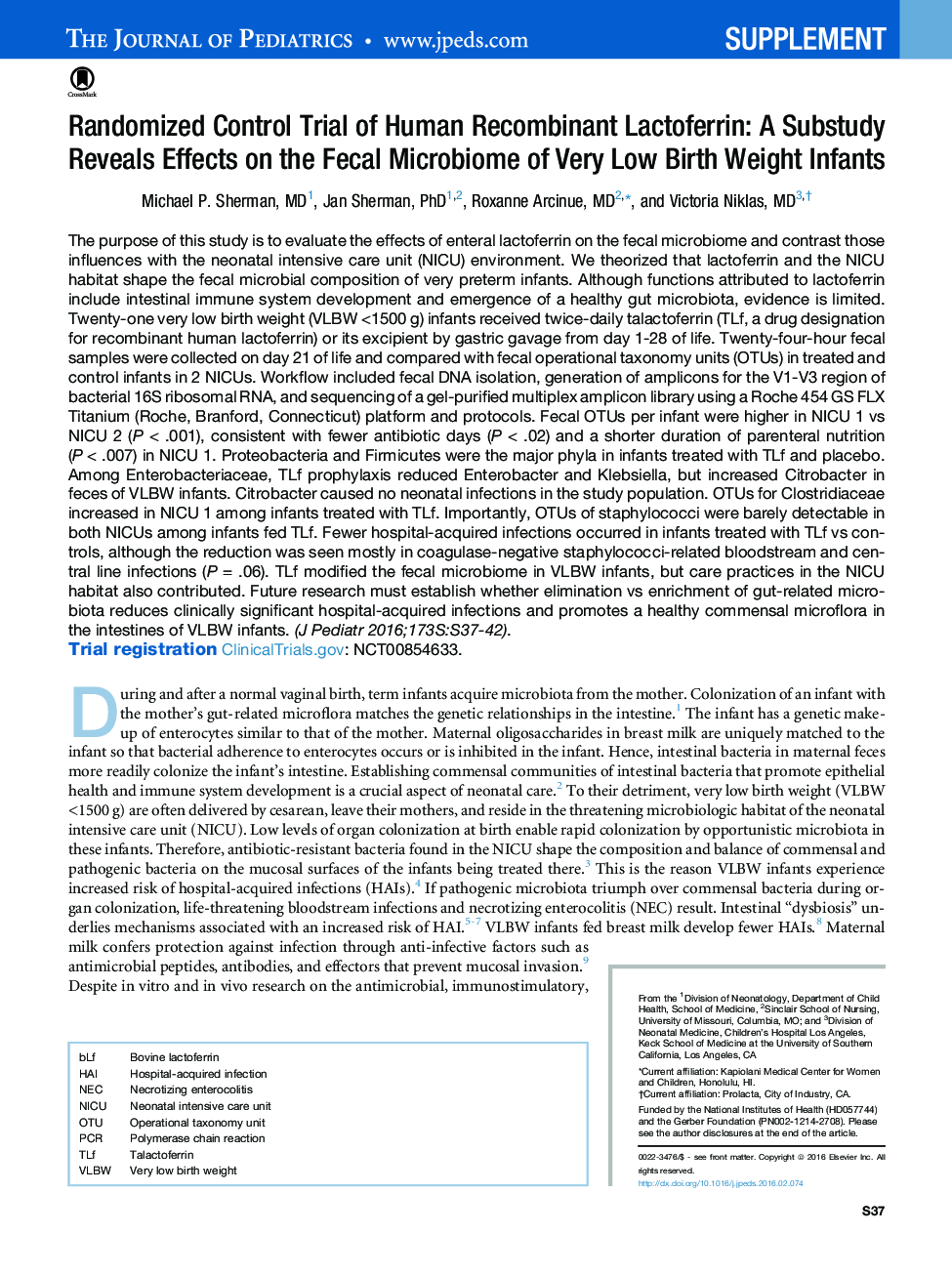| کد مقاله | کد نشریه | سال انتشار | مقاله انگلیسی | نسخه تمام متن |
|---|---|---|---|---|
| 4164599 | 1607429 | 2016 | 6 صفحه PDF | دانلود رایگان |
The purpose of this study is to evaluate the effects of enteral lactoferrin on the fecal microbiome and contrast those influences with the neonatal intensive care unit (NICU) environment. We theorized that lactoferrin and the NICU habitat shape the fecal microbial composition of very preterm infants. Although functions attributed to lactoferrin include intestinal immune system development and emergence of a healthy gut microbiota, evidence is limited. Twenty-one very low birth weight (VLBW <1500 g) infants received twice-daily talactoferrin (TLf, a drug designation for recombinant human lactoferrin) or its excipient by gastric gavage from day 1-28 of life. Twenty-four-hour fecal samples were collected on day 21 of life and compared with fecal operational taxonomy units (OTUs) in treated and control infants in 2 NICUs. Workflow included fecal DNA isolation, generation of amplicons for the V1-V3 region of bacterial 16S ribosomal RNA, and sequencing of a gel-purified multiplex amplicon library using a Roche 454 GS FLX Titanium (Roche, Branford, Connecticut) platform and protocols. Fecal OTUs per infant were higher in NICU 1 vs NICU 2 (P < .001), consistent with fewer antibiotic days (P < .02) and a shorter duration of parenteral nutrition (P < .007) in NICU 1. Proteobacteria and Firmicutes were the major phyla in infants treated with TLf and placebo. Among Enterobacteriaceae, TLf prophylaxis reduced Enterobacter and Klebsiella, but increased Citrobacter in feces of VLBW infants. Citrobacter caused no neonatal infections in the study population. OTUs for Clostridiaceae increased in NICU 1 among infants treated with TLf. Importantly, OTUs of staphylococci were barely detectable in both NICUs among infants fed TLf. Fewer hospital-acquired infections occurred in infants treated with TLf vs controls, although the reduction was seen mostly in coagulase-negative staphylococci-related bloodstream and central line infections (P = .06). TLf modified the fecal microbiome in VLBW infants, but care practices in the NICU habitat also contributed. Future research must establish whether elimination vs enrichment of gut-related microbiota reduces clinically significant hospital-acquired infections and promotes a healthy commensal microflora in the intestines of VLBW infants.Trial registrationClinicalTrials.gov: NCT00854633.
Journal: The Journal of Pediatrics - Volume 173, Supplement, June 2016, Pages S37–S42
